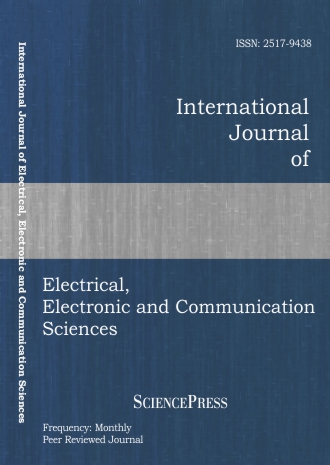
Scholarly
Volume:3, Issue: 2, 2009 Page No: 307 - 311
International Journal of Electrical, Electronic and Communication Sciences
ISSN: 2517-9438
1417 Downloads
Bit-Error-Rate Performance Analysis of an Overlap-based CSS System
In a chirp spread spectrum (CSS) system, the overlap technique is used for increasing bit rate. More overlaps can offer higher data throughput; however, they may cause more intersymbol interference (ISI) at the same time, resulting in serious bit error rate (BER) performance degradation. In this paper, we perform the BER analysis and derive a closed form BER expression for the overlap-based CSS system. The derived BER expression includes the number of overlaps as a parameter, and thus, would be very useful in determining the number of overlaps for a specified BER. The numerical results demonstrate that the BER derived in a closed form closely agrees with the simulated BER.
Authors:
References:
[1] P. Zhang and H. Liu, "An ultra-wide band system with chirp spread